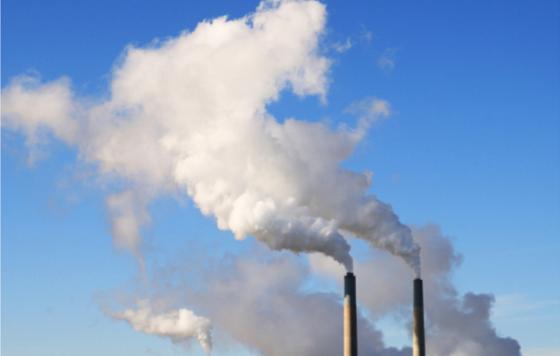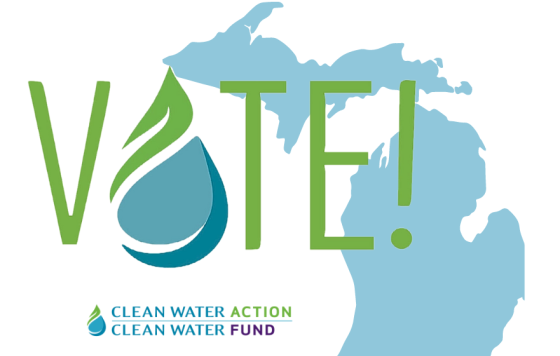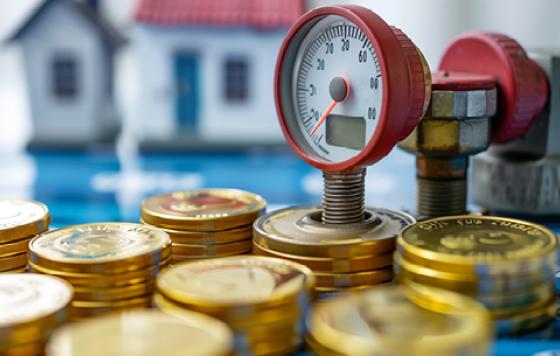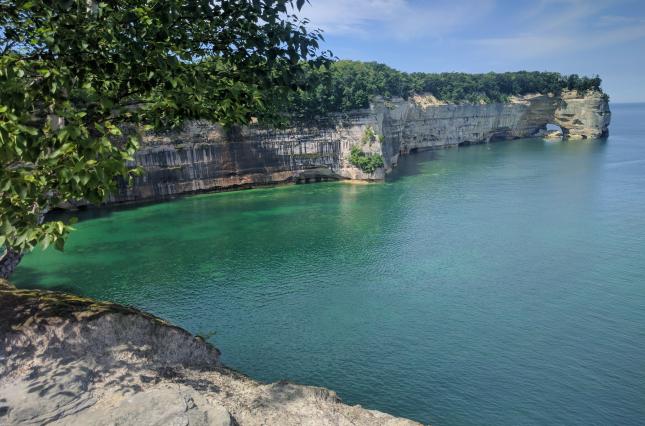In This Issue:
- National Updates
- Taking our Power Back
- Election 2024
- Enbridge Line 5 Heads Back to State Court
- Could Data Centers Endanger Michigan’s Water and Climate Goals?
- Water Affordability
National Updates
Victory After Ten Years of Clean Water Advocacy: EPA Strengthens Coal-Fired Power Plant Water Pollution Limits
On April 25, 2024, the U.S. Environmental Protection Agency (EPA) finalized more strict Clean Water Act wastewater pollution limits (also known as Effluent Limitations Guidelines or ELGs) for coal-fired power plants. Our press release describes the details of the new rule, which will prevent millions of pounds of harmful pollution from being released into our waterways each year, protect drinking water sources for more than 42 million people, reduce costs for drinking water systems and their customers, and ensure a healthier future for all communities. As highlighted in one of our latest blog posts, this win is the culmination of more than a decade of advocacy by Clean Water Action and its hundreds of thousands of members across the country.
A Year Since Devastating Sackett v. EPA Decision: Colorado Leads the Way in Restoring State Protections to Wetlands and Streams
The U.S. Supreme Court issued its decision in the case of Sackett v. EPA on May 25, 2023. This ruling narrowed the Clean Water Act’s definition of “Waters of the United States” by removing protections from most wetlands and streams. Clean Water Action has been working to fill the gap from the loss of these federal protections by advocating on the state level. We recently celebrated a hard-fought win in Colorado with the passage of House Bill 24-1379, which strengthened protections to wetlands and streams (see our blog here). While this was a victory for clean water on the state level, we ultimately need Congress to pass legislation to permanently restore protections to all vulnerable waters and wetlands across the country. You can help by taking action today: urge your U.S. Representative to support a national fix to the Clean Water Act.
Taking Back Our Power
Our fight to make democracy work for the environment
Making corporate polluters pay to clean up the messes they make. Guaranteeing affordable drinking water to all Michigan residents. Enabling real third-party owned community solar programs. Holding monopoly utilities like DTE and Consumers Energy accountable for creating huge shareholder profits while their rates increase and reliability declines. These are just a few of the most critical and widely popular issues that would be easier to address if giant corporations that rely on government contracts were not able to spend money to influence our political process.
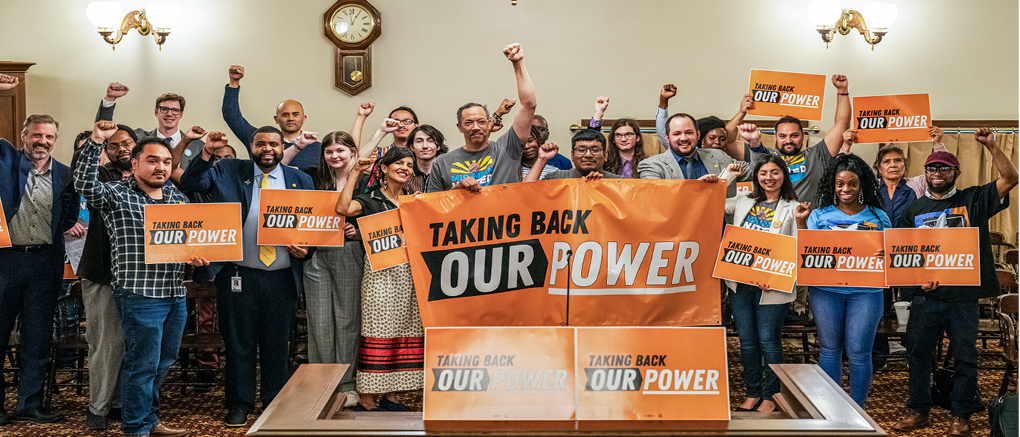
This concept is the root of the Taking Back Our Power (TBOP) campaign, which Clean Water Action has been working on since last November. Estimates show that passage of the TBOP bills would eliminate over 70% of the dark money currently being spent in Michigan elections. Currently, DTE and Consumers Energy are two of the top donors to both the State House and State Senate Republican and Democratic caucuses. With 148 elected Representatives and Senators in Lansing, the number of lawmakers who don’t take money from these two can be counted on two hands.
So far, 17 elected leaders have supported this campaign publicly, and polling shows support from most Michigan voters. In fact, the most common question we hear about the campaign isn’t about how it would work or if it’s a good idea, but whether this could be legal in a post Citizens United v FEC world. Fortunately, similar legislation to what we are proposing has already been passed in seven states and has held up to judicial scrutiny each time it has been challenged. This is the kind of transformational policy that could fundamentally shift our ability to make democracy work for the environment and we are putting in the work to ensure that this becomes law.
Take Action
Go to cleanwater.org/TBOP to learn more and ask your state lawmakers to sign the Taking Back Our Power pledge!
Election 2024
What you need to know and our first round of endorsements
This year’s election promises to be one of the most pivotal elections in history. There is so much at stake for Michigan residents, our Great Lakes, and the future of our state and country. We are excited to share our first round of endorsements with you. These candidates and lawmakers have shown that they take protecting our water, confronting the climate crisis, and prioritizing the health of our communities seriously and we are proud to stand with them in 2024!
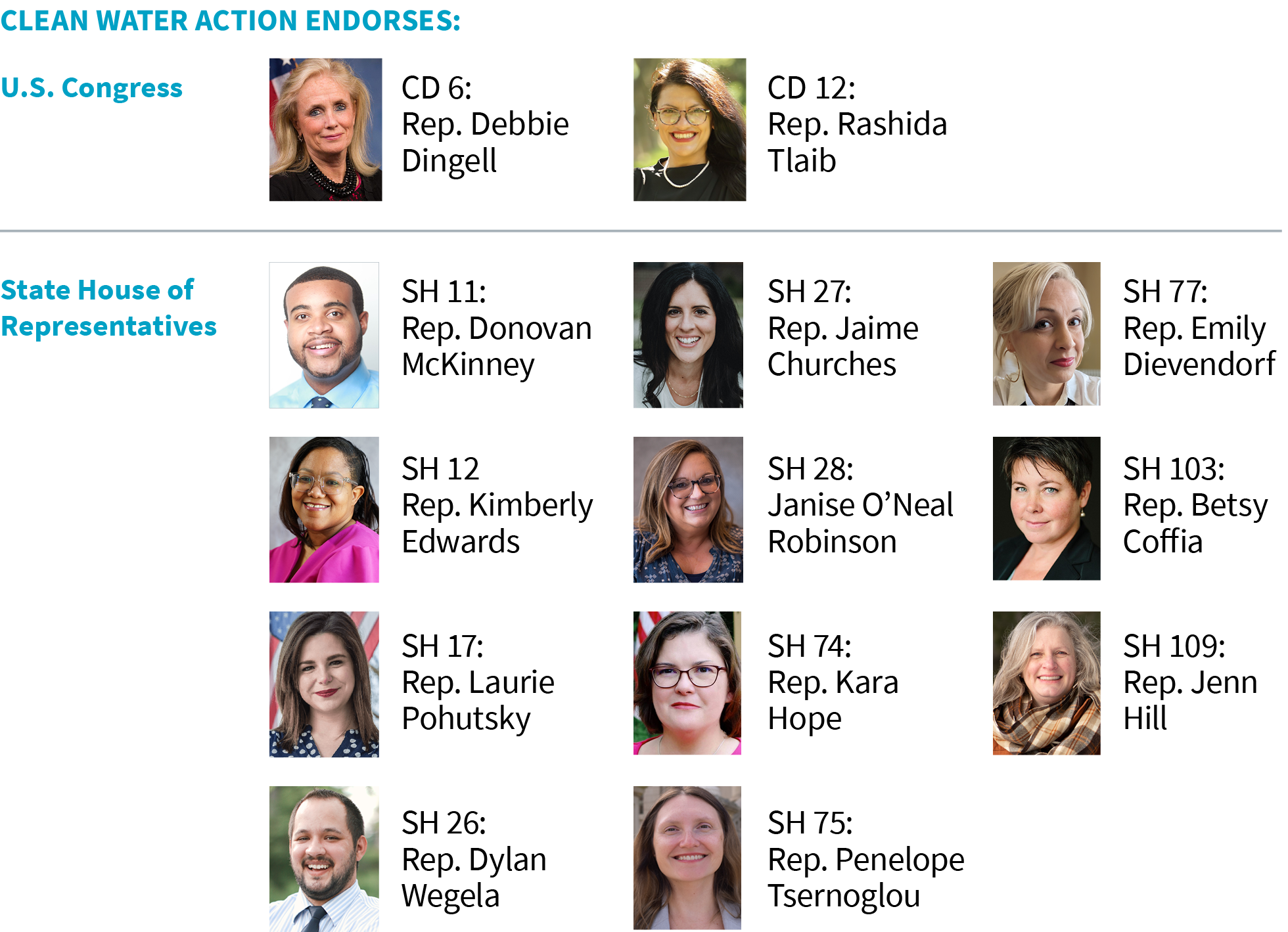
If you are a Michigan resident and would like to register to vote, or update or check your registration, please go to www.mi.gov/vote.
Your vote is your voice! Find information on voter registration, early voting, absentee voting, election day, and our Clean Water Voter endorsement list at cleanwater.org/voteMI
Enbridge Line 5 Heads Back to State Court
On a cold and windy March morning in Cincinnati, Clean Water Action staff, supporters, Indigenous leaders, allies from our Oil and Water Don’t Mix coalition, and Attorney General Dana Nessel gathered a block from the US Federal Court of Appeals for the Sixth Circuit. People came from across the state, traveling as much as 10 hours to hear Deputy AG Dan Bock take on Enbridge’s lawyers in Nessel v Enbridge.
This case started back in 2019, before Governor Whitmer had even revoked Enbridge’s easement to operate in the Straits of Mackinac. Nessel sued Enbridge in state court, claiming that the 1953 easement should be considered void on its face because the state never considered its obligations under the public trust doctrine in issuing the easement, among other things. For two years, Enbridge litigated the case in state court, and in the summer of 2020, Judge Jamo even granted the AG a temporary restraining order, shutting down all of Line 5 for weeks and one leg of the pipeline for months. Then the following winter, while Judge Jamo was considering cross motions for summary disposition, Enbridge attempted to remove the case to federal court. Generally, a party has 30 days from the date that a case is first filed to remove it to federal court, but Enbridge waited an astounding 880 days to attempt to remove the case.
After a stellar courtroom performance from Deputy AG Bock, the Sixth Circuit judges ruled in June that this case belongs in state court and ordered this case sent back to Ingham County Circuit Court. This is a huge step in the right direction — Michigan courts and Michigan judges are best suited to decide the clear state law issues at hand with Line 5. We look forward to the next steps in the Ingham County Circuit Court, and are hopeful that justice will prevail and Enbridge will be forced to shut down before tragedy strikes in the Straits of Mackinac.
In the meantime, the major answers around Line 5 are clear. Once the pipeline is shut down, experts have proved that there won’t be any oil or gas shortages. With the hottest years on record being consistently beaten and the climate crisis continuing to accelerate, we know that building an oil tunnel under 20% of the world’s fresh water is a hopelessly foolish scheme that will only enrich the oil industry at the expense of everyone else on the planet. With your continued support, Clean Water Action will keep up this fight for as long as it takes, protecting our water is worth it.
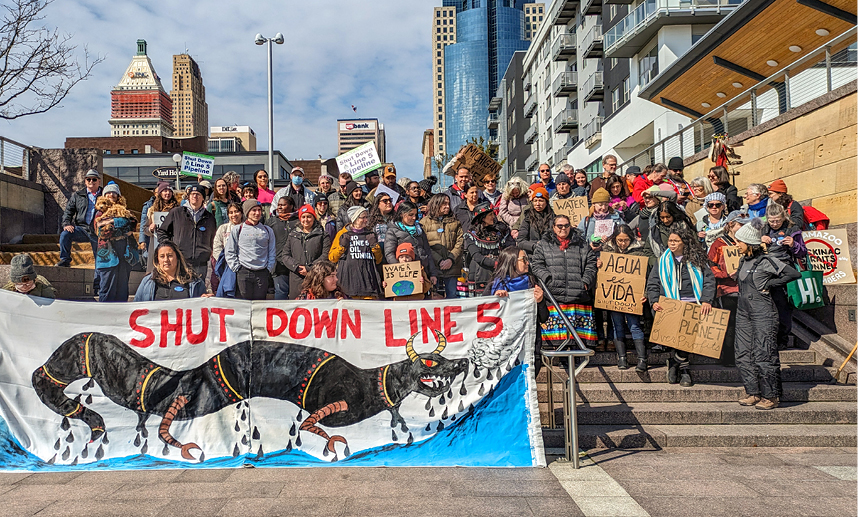
Supporters rally before US Federal Appeals Court for the Sixth Circuit hears Nessel v Enbridge.
Could Data Centers Endanger Michigan’s Water and Climate Goals?
Now more than ever, we live in an interconnected world that is increasingly reliant on technology, and the technology that we rely on is getting increasingly more complex. The rise of cryptocurrency and artificial intelligence create even greater demand for the physical infrastructure that our online world must have to operate. The physical infrastructure of the internet is expanding, which means that companies are building more and larger data centers and looking for more places to build them.
Michigan is really an ideal sort of place for tech companies to build data centers due to our relatively cool climate, freshwater access, and available industrial space. However, data centers use massive amounts of water and electricity, and without responsible oversight, the development of data centers has put states like New York and Virginia further behind on their climate goals. On the water side, large data centers can use anywhere from 1 to 2.5 million gallons of water daily in their evaporate cooling systems. That is 2-5 times the amount of water that Nestle requested back in 2016, per data center.
The good news here is that this extreme water usage is not necessary and the electricity usage can be mitigated as well. Data centers will almost surely be coming to Michigan as the industry continues to expand, so the role of our state government must be to safeguard our natural resources in order to prepare for the expansion of data centers in-state. Rather than offering companies like Google, Microsoft, and Meta 40 years of sales and use tax exemptions just for setting up shop here, we should be setting up requirements that data centers don’t use evaporative cooling and rely on renewable energy generated on-site. These are after all, some of the most profitable corporations in history, they can and must be required to do better than the bare minimum. In order for data centers to be a net positive for Michigan, we must ensure that our water and climate goals are protected.
Water Affordability
Current estimates show that nearly 1 in 10 Michigan families struggle with water affordability, and we need a statewide solution. Clean Water Action, along with the grassroots activists who have been leading the fight for water affordability, are calling on all Michigan State Senators and State House Representatives to pass legislation this year that will protect Michigan families from having their water shut off due to an inability to pay unaffordable bills.
TAKE ACTION TODAY by telling your elected officials to advocate for water affordability legislation! Cleanwater.org/MIWaterAffordability
Thank you for supporting our work in Michigan.
CURRENTS is published by Clean Water Action and Clean Water Fund.
Reproduction in whole or part is permitted with proper credit. © 2023 All rights reserved.

